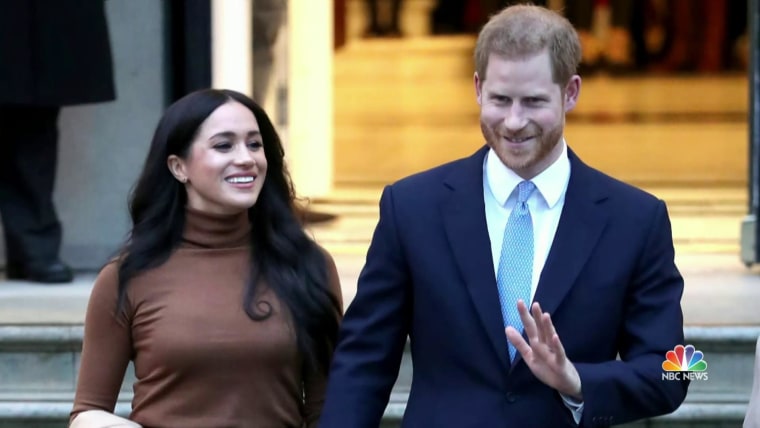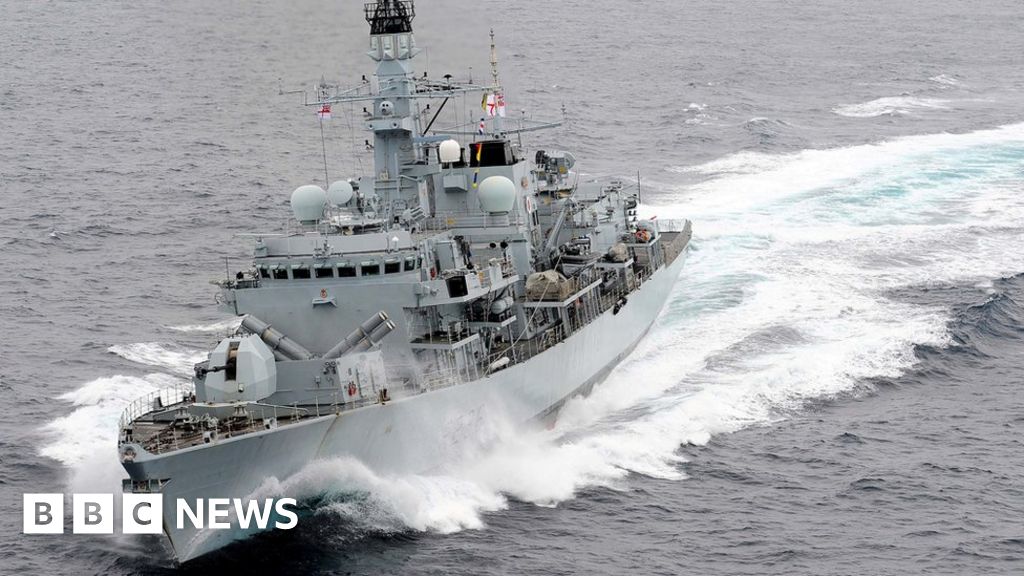Going long-distance. Duchess Meghan is back in Canada while Prince Harry remains in the United Kingdom amid the news they’re stepping back as senior members of the British royal family, according to CNN.
Harry, 35, and Meghan, 38, had left son Archie, 8 months, in the care of a nanny and Meghan’s close friend Jessica Mulroney in Canada after spending an intimate Christmas there — in lieu of the British royal family’s annual holiday celebration at Sandringham Estate in England.
Harper’s Bazaar reported on Thursday, January 9, that both the Duke and Duchess of Sussex planned to return to Canada that evening, but Meghan ended up traveling solo, as a spokesperson for the couple told CNN.
Harry and Meghan announced their “transition” in an Instagram statement on Wednesday, January 8, specifying that they had decided to step back after “many months of reflection and internal discussions.”
“We have chosen to make a transition this year in starting to carve out a progressive new role within this institution,” their joint statement read. “We intend to step back as ‘senior’ members of the Royal Family and work to become financially independent, while continuing to fully support Her Majesty The Queen. It is with your encouragement, particularly over the last few years, that we feel prepared to make this adjustment.”

The couple also revealed they plan to “balance” their time between the United Kingdom and North America. “This geographic balance will enable us to raise our son with an appreciation for the royal tradition into which he was born, while also providing our family with the space to focus on the next chapter, including the launch of our new charitable entity,” they explained.
In its own statement on Wednesday, Buckingham Palace asserted that it was having “early stage” discussions with Harry and Meghan. “We understand their desire to take a different approach, but these are complicated issues that will take time to work through,” the statement read.
A palace source later told Us Weekly that Queen Elizabeth II, Prince Charles and Prince William “have directed their teams to work at pace with governments and the Sussexes’ office to find workable solutions, and this is expected to take days, not weeks.”
Royal expert Richard Fitzwilliams, meanwhile, claimed that the other royals “didn’t know of the statement,” and a source said the royal couple “made their statement without the official blessing of the queen,” because of “a miscommunication.”
The announcement hit Prince William, Harry’s brother, especially hard, according to an insider. “William was blindsided by Harry and Meghan’s decision and statement,” the insider exclusively told Us on Wednesday. “There’s still a rift between the two brothers. It’s sad because when they were younger, William would be the first person Harry would go to with big news like this. William is incredibly hurt, but at the same time he has his own family to focus on and is trying to move forward with his life.”
The transition “is a blow to the royal family because they were the modernizing face of it globally from a charitable intent,” Fitzwilliams concluded. “It’s completely unprecedented. There’s no question, however, that it marks a combination of months whereby it’s been clear that … pressures, especially from the media, have made [Harry and Meghan] deeply unhappy in the roles of senior royals. And what we have seen is something that ensures, as they see it, that they will be doing things their way.”
https://news.google.com/__i/rss/rd/articles/CBMibmh0dHBzOi8vd3d3LnVzbWFnYXppbmUuY29tL2NlbGVicml0eS1uZXdzL25ld3MvZHVjaGVzcy1tZWdoYW4tcmV0dXJucy10by1jYW5hZGEtaGFycnktc3RheXMtaW4tdS1rLWFtaWQtZHJhbWEv0gFyaHR0cHM6Ly93d3cudXNtYWdhemluZS5jb20vY2VsZWJyaXR5LW5ld3MvbmV3cy9kdWNoZXNzLW1lZ2hhbi1yZXR1cm5zLXRvLWNhbmFkYS1oYXJyeS1zdGF5cy1pbi11LWstYW1pZC1kcmFtYS9hbXAv?oc=5
2020-01-10 14:38:56Z
52780542675596



